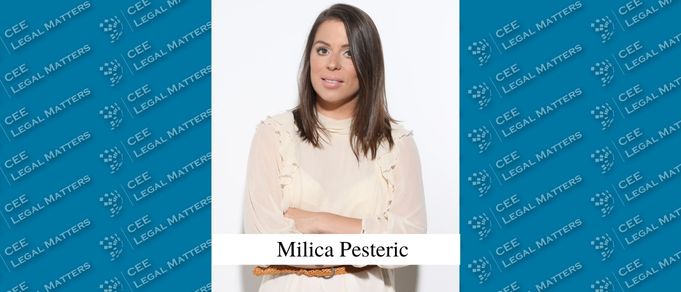Strong M&A transaction volumes, rising investor interest in the renewables sector, and a flood of work relating to the immigration waves from Ukraine and Russia are the headlines for Serbia, according to Bojovic, Draskovic, Popovic & Partners Senior Associate Milica Pesteric.
“In the past two months, we have seen an increase in the overall volume of M&A transactions, much like throughout 2022,” Pesteric begins. “Many local IT companies have grown to such a level that they began drawing international investor attention.” Even with the “current political positioning of Serbia, and its current risk profile, investor appetite has been strong. However, if the current ‘limbo’ of being neither to the west nor to the east continues, such transactional vibrancy might be faced with a slowdown,” she shares.
Speaking of investor interest, Pesteric reports “much attention” being placed on renewables. “We have seen a spike in foreign investor interest, primarily driven by the favorable overhaul of the renewables regulatory framework following the establishment of the new government recently,” she explains. “The new law on renewables provided a set of incentives – like new quotas for wind power projects above three megawatts. These incentives proved to be quite appealing to investors, and more are likely to come as soon as the Ministry of Energy is done with all of the delegated acts it’s due to complete,” Pesteric says.
On the other hand, financing for renewables is not as easily obtained as investor interest has been. “Procuring the funding has become more challenging, given the overall energy crisis in Europe,” Pesteric explains. “The levels of bankability are not as they were before, and banks are just not that willing to venture into new projects. Still, I expect international financial institutions to step in and help with the overall situation, ultimately removing all blockers” to renewable project development in Serbia, she says.
Finally, Pesteric reports that the waves of immigrants from warring Ukraine and Russia have created strong streams of work for lawyers. “This has been, perhaps, the most noticeable consequence of the war – the sheer amount of immigrants that came to Serbia. We have been very busy with establishing companies, setting up bank accounts, and dealing with work and residence permit administrative processes,” she explains. “Setting up bank accounts, for example, has been quite challenging due to the volume of requests and the overall approach of the entire banking sector to the war. Additionally, both the lawyers and the state administration have been struggling when it comes to working and residence permits – the system has never faced such an amount of work,” Pesteric highlights.






















